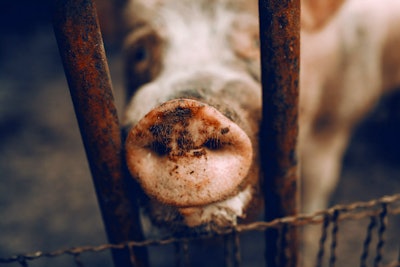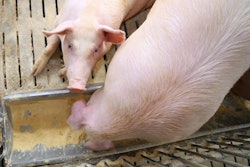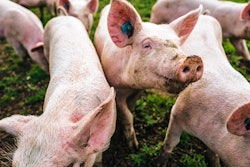
ASF-free Asia-Pacific nations continue to try to keep ASF out of their territories as new outbreaks are reported elsewhere.
First cases of African swine fever (ASF) this year have been confirmed in Chongqing and Gansu in China, while new outbreaks have been reported in the Philippines and in South Korean wild boar.
China’s agriculture ministry reports the detection of the ASF virus for the first time in 2020 in two regions.
At the start of April, the disease caused the death of 64 pigs at a farm with almost 300 animals in the city municipality of Chongqing. The remaining 234 pigs have been culled, according to the official report to the World Organization for Animal Health (OIE).
ASF virus was last detected in Chongqing in November 2019. The source of the infection was attributed by the ministry to the introduction of new pigs to the farm herd, and to illegal animal movements.
Aimed at minimizing the spread of infection from one area to another, Chinese authorities have set up checkpoints on key transport routes. At these locations, officials check the documentation and health of any pigs in vehicles.
In the Longnan city prefecture of Gansu province, one such inspection revealed 67 dead pigs in a vehicle carrying 110 animals at the end of March. The remaining animals were culled after the presence of the ASF virus was confirmed. Also in Longnan, ASF was recently identified as the cause of death of 139 pigs out of a village herd in the district of Wudu.
ASF virus was last detected in Gansu in November 2019.
This month, China’s Ministry of Agriculture and Rural Affairs reported that restrictions had been lifted in part of the Sanmenxia city region of Henan province. These measures had been applied after an ASF outbreak in the region’s Mianchi county during March. The affected pig herd was destroyed, and the ASF virus was not detected in the area over the next 21 days.
ASF confirmed in another province of the Philippines
According to the latest report from the Department of Agriculture to the OIE, 2,529 pigs were destroyed as the result of ASF in the first week of February. These animals belonged to village herds in Davao Oriental, a province in the southeast of the island on Mindanao. Also in the Davao region are Davao Del Sur and Davao Del Norte, where ASF has been confirmed since the end of January.
Concerns over the novel coronavirus (COVID-19) pandemic have distracted from the ASF situation in the Philippines.
Manila Bulletin reports that ASF outbreaks continue on the island of Luzon. There have been 69 new outbreaks in that area. Almost 80 of the pigs died, and a further 42,000 were culled to prevent further spread of the infection.
In the Philippines, losses resulting from mortality and culling are now approaching 300,000 pigs. This equates to more than 2% of the country’s 12.8 million hog population.
A senior government official has urged for greater efforts to eradicate ASF from the country. Socioeconomic Planning Secretary Ernesto Pernia called for improved biosecurity and quarantine procedures, reports Philippine News Agency.
“The presence of these animal diseases in the country calls for a more effective implementation of the prevention and protection programs, as well as heightened monitoring of possible resurgence of other infectious diseases,” he said.
South Korea’s wild boar losses approach 500 animals
Over the past week, a further 23 wild boar in South Korea have tested positive for the ASF virus, according to the latest reports to the OIE. Most of these animals were in the previously affected Yeoncheon region of Gyeonggi province, and in Hwacheon in Gangwon.
Up to April 8, the total number of wild boar found dead or culled as the result of ASF stood at 496, according to Yonhap.
ASF threatens other Asia-Pacific nations
With pigs important for the food supply and culture, the spread of ASF presents a threat to human health in the Pacific Islands, reports Radio New Zealand. To prevent the entry of the virus, New Caledonia, Samoa and the Solomon Islands have introduced restrictions on pork imports.
This latest warning came after confirmation of the first outbreaks of ASF in Papua New Guinea (PNG). Affected herds are in the Highlands region, where pigs are particularly highly valued.
Before the disease struck the area, PNG’s Post-Courier reported that societies in the region have a long tradition of rearing pigs. Exchanged in marriage and to resolve disputes, the pig is vital for everyday life of these people.
In Australia, one state minister has warned that the need to tackle the COVID-19 pandemic could adversely impact the response to the ASF threat.
Neither Australia nor New Zealand is among the 13 countries of the Asia-Pacific region to have detected ASF in its pig populations.
View our continuing coverage of the global African swine fever situation.


















